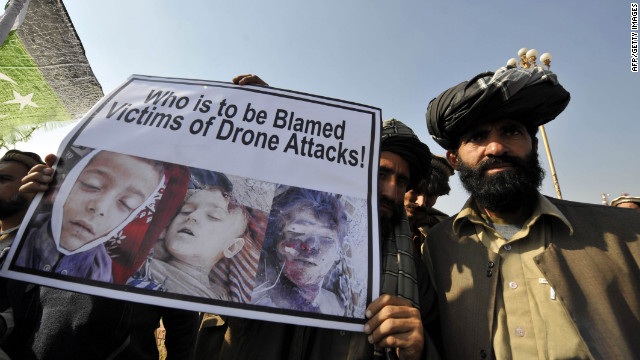
A recently released UN report suggests there is “strong evidence” that top Pakistani military and intelligence officials approved US drone strikes on Pakistani soil during 2004 and 2008.
“There is strong evidence to suggest that between June 2004 and June 2008 remotely piloted aircraft strikes in the Federally Administered Tribal Areas were conducted with the active consent and approval of senior members of the Pakistani military and intelligence service, and with at least the acquiescence and, in some instances, the active approval of senior government figures,” says the report by Ben Emmerson, UN Special Rapporteur on human rights and counter-terrorism.
"In an apparent reference to Pakistan, Heyns’ report suggests consent from military or intelligence officials may not be enough to satisfy legal requirements for the US to conduct drone strikes on foreign territory, according to international, humanitarian and human rights law."
“Only the State’s highest government authorities have the power to give consent to use force. It is not sufficient to obtain consent from regional authorities or from particular agencies or departments of the Government.”
The report adds that though consent may not necessarily be made public, it must be “clear between the States concerned that consent is being given to a use of force, and the parameters of that consent should also be made clear.”
“Once consent to the use of force is withdrawn, the State conducting the targeting operations is bound by international law to refrain from conducting any further operations from that moment,” it says, adding that states “cannot consent to violations of international human rights law or international humanitarian law on their territory.”
“Officials indicated that, owing to underreporting and obstacles to effective investigation, those figures [of civilian casualties] were likely to be an underestimate.” .




No comments:
Post a Comment